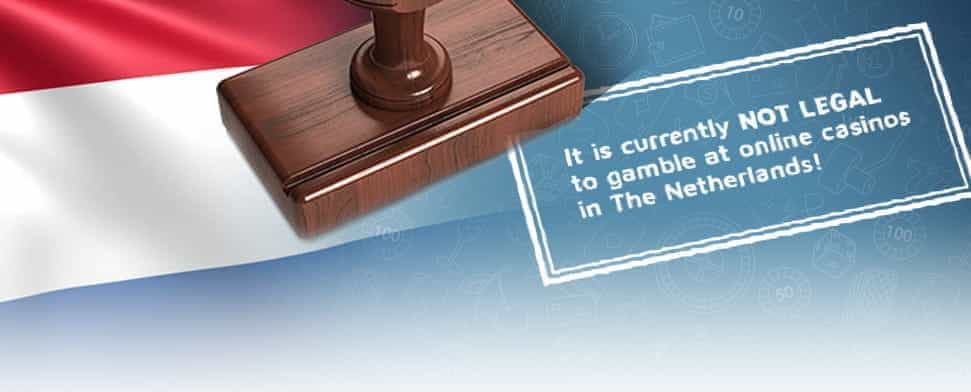Online Gambling Netherlands
After many years of waiting, the market for online gambling in The Netherlands will finally open. As things currently stand, it will be possible for providers to request a license as of 1 January 2021.

With concerns over loot boxes in late 2017, the Dutch Gaming Authority reviewed several games with loot boxes, found them to violate the Netherlands' gambling laws, and issued letters to publishers of several unnamed games in April 2018, giving them eight weeks to correct the loot box or face fines or criminal charges. Feb 08, 2021 The GLI-19 Standards and GLI-33 Standards certification will enable FansUnite to deliver its online gambling products to various States in the U.S. And Provinces in Canada that require gambling. The Act is the major online gambling law that sets the conditions for establishing remote or online gambling providers in the Netherlands. It comes as amendments to the Betting and Gaming Act, the Betting and Gaming Tax Act, and also some other acts that are related to the regulation of remotely-offered games of chance. Dutch Betting Sites The sports betting monopoly in the Netherlands is run by De Lotto. Bets can be placed on sporting events in the shops and through the Toto website. Compared to most bookmakers, the number of markets is very limited, with betting only available on football, hockey, cycling, formula one, basketball, baseball and tennis. Learn more about the subject of history, which is broadly defined as the study of past events. Due to the broad nature of the concept, most historians narrow their scope by focusing on a particular time period, a particular country or region, a particular person, group, or individual person, a particular theme, or any combination of those categories.

The principle underlying the regulation of online gambling is to guarantee a safe environment for players to participate in online gambling, where gambling addiction and (gambling-related) crime is prevented. In this respect, the Dutch government has a ‘channeling’ objective of 80%, meaning that it aims for 80% of the people that participate in online gambling to do so with a legal and therefore reliable provider. By opening the market, the government expects that it will become easier to supervise the online gambling market. This supervision will be carried out by the Dutch regulator in the field of (online) gambling, the Dutch Gaming Authority (Kansspelautoriteit; “DGA”).

Applications for licenses will have to be submitted to the DGA for an amount of € 45.000 and will only be granted when the applicant meets a set of strict legal requirements set forth in the Remote Gambling Act (Wet kansspelen op afstand; “RGA”), the Decree Remote Gambling (Besluit kansspelen op afstand; “DRG”) and the Ministerial Decree Remote Gambling (Ministeriële regeling kansspelen op afstand; “MDRG”). Main features of these requirements are the reliability of the applicant, responsible play and crime prevention.
Reliability of the applicant
The reliability of the applicant, including its directors, policy makers and shareholders, must be beyond any doubt. In this respect, the applicant must provide information regarding (among others) criminal incidents, financing and an overview of affiliated companies.
The reliability of applicants that already have been active in the market, will be assessed by the DGA on the basis of the compliance with the so called ‘cooling off-criteria’ for a period of currently 2 years prior to the date on which the application is filed.
The cooling-off criteria are:
- no use of a .nl-extension;
- no use of the Dutch language;
- no advertising on television, radio or printed media, targeting the Dutch market;
- no use of domain names containing typical wordings referring to The Netherlands in combination with gambling references;
- no references from which a focus on The Netherlands can be derived, i.e. via wordings, symbols or images;
- no use of payment methods that are used exclusively or mostly by Dutch people, such as iDEAL;
- not allowing minors (< 18) to participate in online gambling.
Also, the applicant is required to have a policy in place to guarantee the continuity of the reliability.
Responsible play
The applicant must also have policies and measures in place that guarantee that minors and other vulnerable groups are protected against the risks of online gambling.
As for minors (< 18), this means that they have to be excluded from participation in online gambling in any case. As for youngsters (18 – 24), this means that they cannot be a target of marketing- and advertising activities. In line with this, it is also prohibited to use the services of individual professional sportsmen. Advertising that is permitted must be in accordance with the risk analysis that the license holder is required to make of its offer.
As for adults, there is (among others) a Central Register Exclusion Games of Chance (Centraal Register Uitsluiting Kansspelen; “CRUKS”). As the name suggests, this register contains the names of persons that are (temporarily) excluded from online gambling, for instance due to excessive participation. Such registration can be both voluntary and involuntary. The tender for CRUKS was published recently. The DGA developed and tested the application in-house. The tender relates to the hosting, functional and technical application management and further future development of the application.
Furthermore, in order to prevent online gambling from even becoming excessive and eventually turn into gambling addiction, the license holder must provide for adequate trainings for its personnel.
Crime prevention
In order to provide for a crime free-environment for online gambling, applicants must demonstrate compliance with the provisions of the Prevention of Money Laundering and Terrorism Finance Act (Wet ter voorkoming van witwassen en financieren van terrorisme) and the Sanctions Act (Sanctiewet). The first act contains provisions on risk management, client investigation, reporting of unusual transactions, retention of supporting documents and training. In view of compliance with the latter, relevant are whether international measures were issued in response to a violation or threat to international peace and security.
Supervision by the DGA
When applicants are granted a license, they have to report frequently to the DGA in order for the DGA to exercise its supervisory powers. In this respect, license holders are also required to have a Control database (Controledatabank; “CDB”) in place that is accessible by the DGA. Via the Control database, the DGA can view digital data from license holders and verify whether they comply with certain license conditions.
Gambling tax is due on prizes that exceed the (gross) amount of €449 and must be paid by the license holder. The tax rate is 29%.


What’s next?
At this moment, the responses to the lower regulation that was published for consultation are being processed and details in the legal framework are specified. The amended Decree was sent to Parliament this week. The technical requirements regarding CRUKS and the CDB are expected before the start of summer. We expect that by then, the (draft) license application form will be published for consultation, after which a response can be submitted. However, with the information currently available it is well possible to already start preparing for submitting an application. As the saying goes, well begun is half done.
For questions, more information or assistance with (the preparation for) an application for online gambling in the Netherlands, please contact Machteld Robichon or Fransje Brouwer.
Online Gambling Netherlands Europe
Business, Industry, and FinanceGale provides insights and useful resources for business, industry, and finance research, including companies, how they're managed, and their interactions with other business, across a variety of topics, including business, careers and occupations, economics, finance, industries and companies, management, and marketing. | EducationGale provides insights and useful resources for education research, methods, and issue analysis across a variety of topics, including formal learning options available in the United States to students of all ages—beginning with preschool and progressing through primary school, secondary school, and institutions of higher education, to professional development, educational methods and issues, and more. | Health and MedicineDive into the field of health and medicine, a subject that encompasses the study of the prevention, cure, and understanding of disease as well as the investigation of physical and mental well-being. This topic includes health care, medicine, human anatomy, and patient’s access to care. To improve a patient’s health, medical professionals use therapy, medications, and diets. |